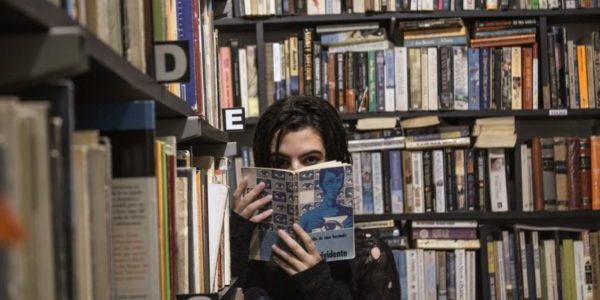‘Confessions of a Bookseller’ showed me all was well with the world
Recently, a sub-genre of non-fiction bestsellers has morphed into existence, focusing on the professions of individuals. Whether it’s Adam Kay’s This is Going to Hurt or The Secret Barrister by…the secret barrister, the very British trait of being nosey is reflected in what non-fiction tales are selling well. Perhaps it is a desire to educate ourselves and see what takes place behind the scenes of jobs in jobs we think we know so well. As a proud nosey parker, I’m delighted to say that a book that did exactly that was Shaun Bythell’s Confessions of a Bookseller. It was my final read of last year, and was informative, wry and a complete hoot.
The sequel to Bythell’s The Diary of a Bookseller, the book follows the life of Shaun Bythell, owner of ‘The Bookshop’ in Wigtown, Scotland, a small town known for its obsession with, well, books. The sequel is written in diary form, detailing every day in the life of a bookseller (apart from Sundays). Within each entry would be the number of customers served, how many books had been found and the all important till total. I enjoyed the first volume immensely and was therefore intrigued as to whether the second volume would continue my interest.
There is something inherently idyllic and romantic about a bookshop
I should have always felt optimistic about the next edition. It may not surprise you to learn that I am a book obsessive. I also have an unhealthy love for bookshops, especially if they are independent. It remains on my bucket to visit all four branches of Topping and Company Booksellers, a divine independent company celebrating books and the power of words in four locations. I love the comfort of bookshops: the long wooden shelving; the beautiful presentation of books; ladders to reach the highest placed literary delights. There is something inherently idyllic and romantic about a bookshop.
Much of bookshop life from behind the other side of the counter is unremarkable and formulaic. Bythell recounts the daily experience of opening the shop – sometimes not on time – and dealing with customer orders, which allows regular fine rants against Amazon and the Kindle. As a proud and unapologetic print support, this was a joy to read. Regularly, Bythell has to leave the bookshop in the hands of his (mostly capable) assistants to go and view books that could potentially join his endless treasure trove of classics. It was admirable and shocking in equal measure to see the distances he drives, with no ideas as to the quality of the books. That he then pays vast amounts for the books, along with the fuel costs, demonstrates his selfless admiration towards the book profession, which can hardly be extremely profitable.
Yet with this routine comes the most bizarre, surprising occasions that could only take place in a bookshop. The excellence of a diary form means that each day is new and unplanned. There is no preconceived narrative or time to edit. It is simply his thoughts from that day. What could at first be a normal day is then followed by the strangest of conversations, usually thanks to the characters Bythell comes across. His colleague Nicky is a proud Jehovah’s Witness who often brings leftover food from the local tip to her shifts and regularly updates the Facebook page to make fun of Shaun. Mr Deacon is a regular, posh customer who is always in to order books while making very little conversation at all. And Granny is a young Italian woman who volunteered over the summer while attempting to learn English. Only at a bookshop would such a variety of people convene.
We will all miss a high street containing proudly independent bookshops when they are forced to shut their doors
Bythell’s dedication both to the shop and the wider community is so refreshing and wonderful. Like all great mediums, Bythell is able to show, not tell us, his devotion to the shop. As a reader, I really felt I had been given the full confessions of a bookseller. The writing went beyond simply the daily work, which dominates much of Bythell’s life. Yet we get to see the parts of Bythell’s life that aren’t easy. The diary entries would be inauthentic otherwise, for we all go through problems during our decades on the planet. It showed that, while a shop can be financially sustainable, life doesn’t disappear when the till stops ringing. For all of us, there are only so many hours in the day. Priorities and dedication has to be chosen.
Generally, I was left feeling far better about the world when I finished these confessions. The cohesion of his writing, Bythell’s dedication to growing a small business, providing a space for engagement in the literary world and his rollicking reads of weird and wonderful customer requests helped to provide a humorous, thought-provoking analysis of life as a bookseller. Fundamentally, Confessions of a Bookseller reinforced my impression that, while Amazon can afford to provide cheap bargains, we will all miss a high street containing proudly independent bookshops when they are forced to shut their doors. It is our job to make sure that the saddest of days remains a fiction.

Comments